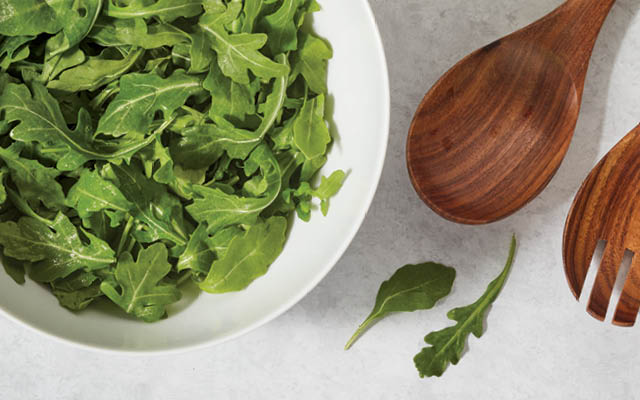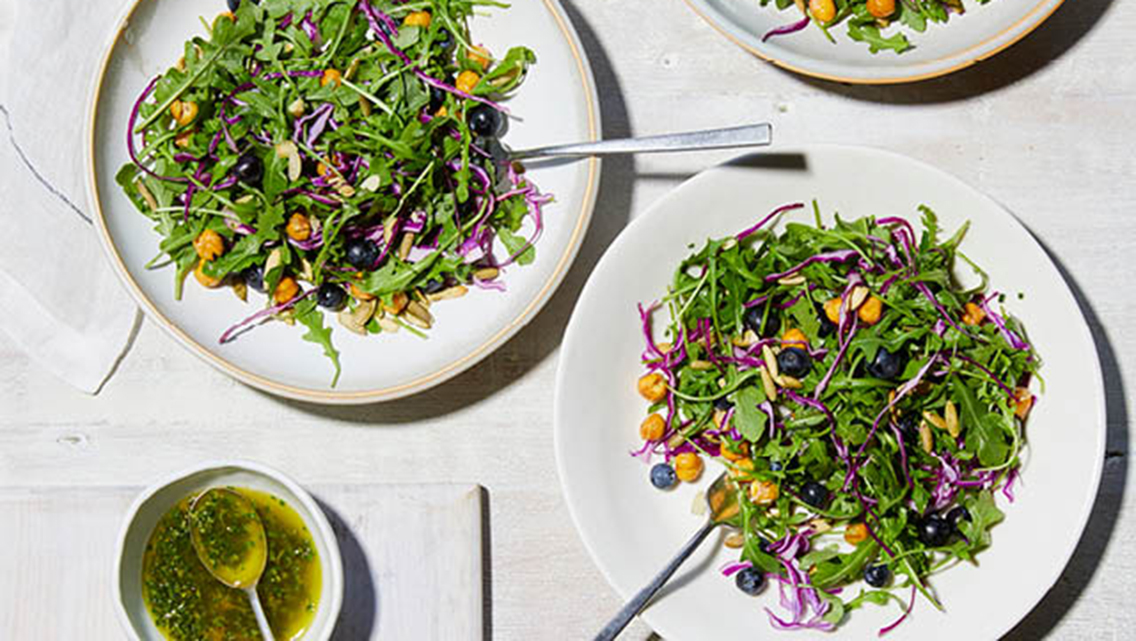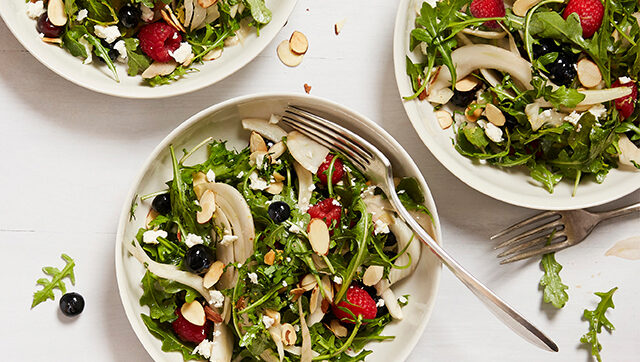Shop and Store
Look for bright, vibrant green arugula, avoiding any leaves that appear wilted or yellow. Buy in bulk, if possible, instead of in single-use plastic clamshells. Wash and dry arugula before storing it in the fridge — sealed in an airtight container lined with paper towels — for up to 10 days. When choosing packaged brands, check the container for excess water, which can rot the leaves.
Eat Up
Arugula has a peppery taste and a tender texture. You can eat it raw or gently cooked, or you can add it to many of your favorite dishes. Baby arugula is younger and tenderer and can be eaten on its own or mixed with other greens as a salad. Mature arugula is darker and more pungent — try it scrambled with eggs or stirred into cooked grains or pasta for added nutrients. (Plus, learn how this lesser known nutrient found in arugula plays a major role in how well we age.)
Get a Boost
A relative of broccoli and cabbage, arugula is a cruciferous vegetable that contains anti-inflammatory, cell-protecting phytonutrients. It’s also rich in vitamins A, C, K, and folate; calcium and potassium; and other vital nutrients.
Grow Your Own
With its shallow roots, arugula is a fairly easy green to grow. And because it’s a cool-weather crop, it thrives in north-facing windows, which is rare for houseplants. In a long, narrow container, plant seeds in the top layer of soil anytime in the spring or early summer. Harvest by cutting each leaf at its base on the main stem.




This Post Has 0 Comments